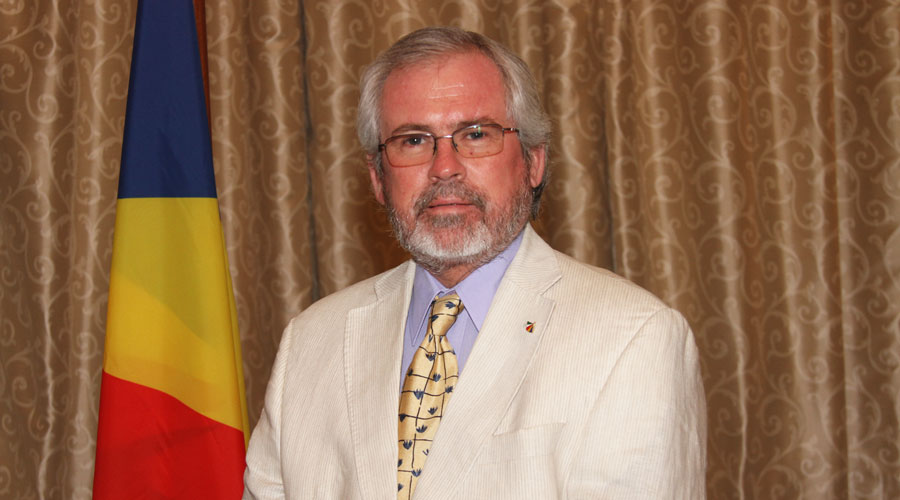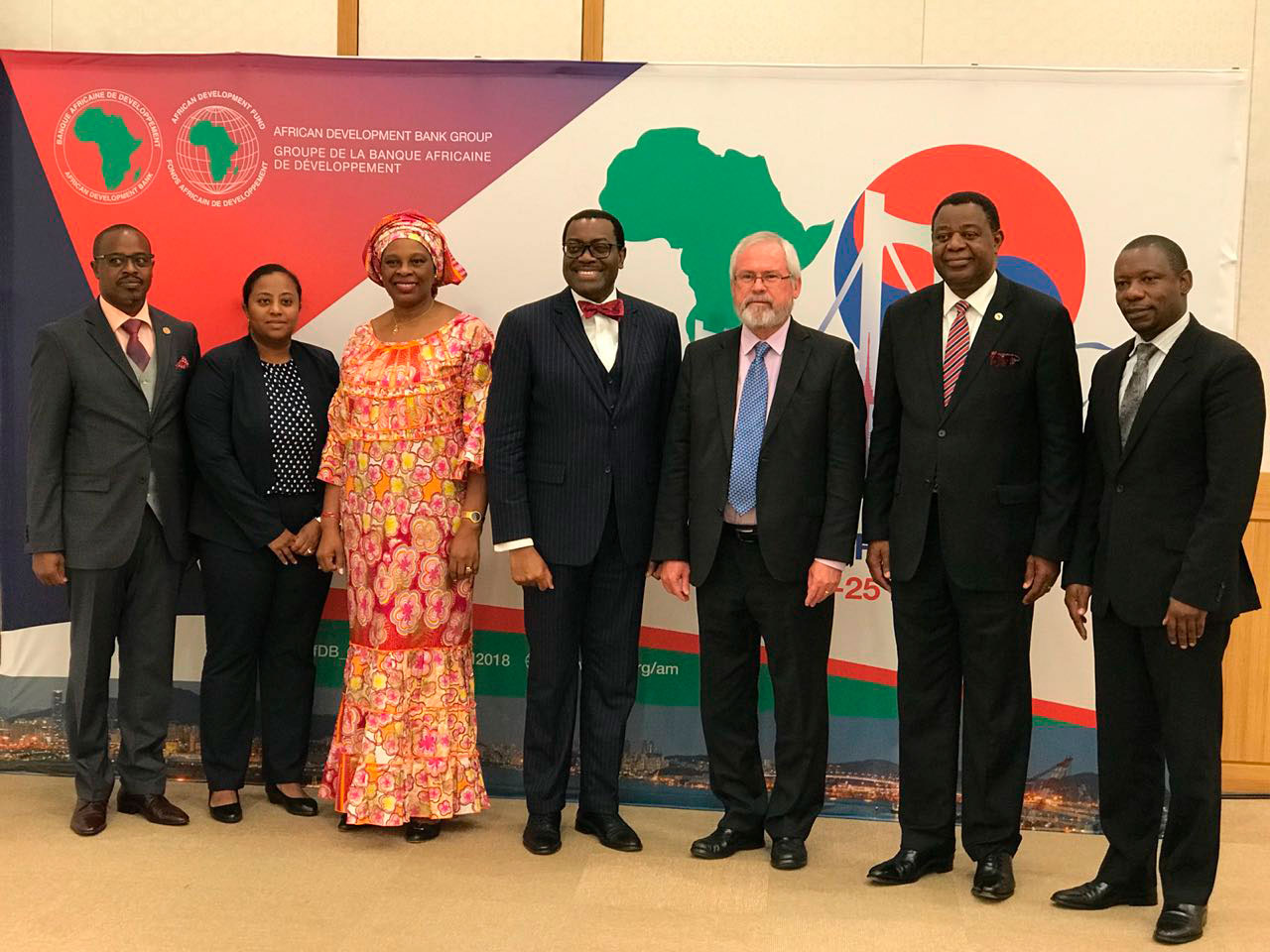
Formerly Seychelles’ Minister for Tourism, Ambassador Maurice J. L. Loustau-Lalanne was named Minister for Finance, Trade, Investment and Economic Planning earlier this year and has wasted no time in seeking to strengthen links between the main drivers of the country’s economy in order to ensure greater value-addition and sustainable growth. Here, he discusses Seychelles’ economic strengths and challenges and outlines the wide array of opportunities for Chinese investors to take part in Seychelles’ future growth

You previously served as Minister for Tourism. What are the biggest differences and overlaps between this role and your last role, and what are your priorities in your new portfolio?
Tourism is still the main pillar of the economy. It contributes around 26 percent of GDP. Thus, my Ministry will still need to work closely with the tourism sector to ensure the growth is sustainable. What we want is to see a more inclusive growth. The link between the tourism growth must be seen alongside the other sectors like fisheries, agriculture and financial services. In tourism, we are trying to get the hotels to provide more local products, such as displaying local paintings in the rooms or serving Creole food. This way, the tourism industry will provide a better livelihood to more Seychellois people. Another priority is to support our small to medium enterprises, and we have put in place credit schemes which would enable them to, for example, take a small loan to build a guest house or buy a fishing boat to provide food for hotels. All of this is centered on value-addition and sustainable growth in the tourism sector.
Some of the key strategies of the ministry are to develop the macro-fiscal framework to ensure credibility and consistency in fiscal and economic policies, as well as to sustain a dynamic trade regime and modern postal regulatory environment to guarantee maximum benefits from trade activities. In recognizing trade as a key tool for development, we will pursue sound trade policies that place public and private sector growth at the forefront of inclusive and equitable socio-economic development. We also want to improve the ease of doing business in Seychelles, which requires well-organized and effective institutions, structures and systems so that we can provide more coordinated, decentralized and effective investment and business support services.
There is also a need to review and align ourselves to the ever-developing economic and political environment; a review of our existing policies and structures, as well as new strategies as to how best to bring on board all relevant partners and stakeholders in the betterment of each and every Seychellois. We are for example in the process of drafting a new National Investment Policy to provide more clarity, predictability to, and build the confidence of potential investors. This policy will also provide guidance to the regulatory bodies to allow them to align their policies and regulations and frame the services and procedures accordingly to contribute to the appropriate environment for investment and doing business.
GDP growth in Seychelles has been consistently strong over the last years. What are the underlying fundamentals that contribute to this strength, and do you see any headwinds coming into the second half of 2018?
Macroeconomic performance continued to be strong in 2017. Economic growth is estimated to have exceeded five percent, reflecting buoyant tourism activity, strong output in the fishery industry, and expanding credit to the private sector
For 2018, we are looking for 3.5 percent growth, and for 3.2 percent in 2019, supported by the tourism sector. While a strengthening in international commodity prices could have some negative impacts on the balance of payments and inflation, the country’s international reserves coverage is expected to remain at the adequate level discussed in the previous IMF Article IV mission and anchored by the authorities’ prudent policies. Downside risks to the outlook largely lie in external factors which could dampen tourism performance. And the recent Fitch ratings has affirmed Seychelles’ Long-Term Foreign-Currency Issuer Default Rating (IDR) at BB- with a Stable Outlook.
Given this robust pace of growth, what measures are in place to ensure the economy does not overheat?
In the Seychelles context, the Ministry of Finance, Trade, Investment and Economic Planning meets with the Central Bank of Seychelles (CBS) on a weekly basis to discuss economic indicators so that measures can be taken either on the fiscal or monetary side to ensure that the economy is growing sustainably. The macro-framework working team also meets at a technical level to discuss these economic indicators. Both teams at the Ministry and CBS work closely with the private sector, especially with the large companies, to know the indicative inflow and outflow of foreign exchange, which can impact on the foreign exchange rates. The Government of Seychelles strongly believes in the private sector being the main engine for economic growth while the public sector should continue to be the facilitator for private initiatives and investment. It is in this light that the Government wishes to ensure that all necessary elements for the conducive environment to encourage and foster private sector development and growth.
The authorities’ endeavor is to have a national strategy that sets the context for the way forward to enhance financial inclusion in the country. In particular, it will focus on deficiencies identified in relation to SME access to finance, enhance competition in the financial services sector, improve access and usage of electronic payment systems and reduce the use of cash payments.
The IMF has recommended a strengthening of the country’s offshore banking framework. Can you outline the strategy for putting in further safeguards around the banking sector from a financial stability and liability viewpoint?
Pressures on correspondent banking relationships remains the most significant threat to financial stability. At present, most banks have only one correspondent banking relationship in major currencies, such as the dollar. To address this issue, a high-level committee has been set up. It is composed of representatives from relevant government ministries and agencies and the private sector to ensure the implementation of the recommendations endorsed by the Cabinet of Ministers. We are currently working with some Chinese banks, and we are hoping to be able to sign a correspondent banking agreement soon with one of them. In addition, the Seychellois authorities are committed to reviewing the model of the offshore sector whereby the aim is to move away from the current international banking center model to a more transparent one, which includes compliance with international standards. We are already working on this issue and actively training people to be able to forensically check compliance issues. The Central Bank is also committed towards ensuring its regulatory framework is in line with international standards. To that effect, work on implementation of Basel II and III is ongoing. The implementation of Pillar 1 of Basel II is anticipated by end June 2018. It is expected that the full framework will be in place by end June 2019.
How would you assess the level of human capital in Seychelles, from the point of view of potential investors coming into the country?
Seychelles has some excellent entrepreneurs, and the level of creativity is high. We are working to improve the business skills of the population and have so far trained around 300 people through our management school. And now more than ever before the government has put in place different mechanisms and create opportunities to encourage local entrepreneurs expand and or value added activities that will cater for both locals and others. Much emphasis is also being put in networking and sharing of best practices in an effort to also diversify these activities and businesses.
How would you assess the government-to-government collaboration between China and Seychelles, and what scope do you see for partnerships between your ministry and the Chinese government?
In the Ministry of Finance, Trade, Investment and Economic Planning, the collaboration with China will be mainly in the realms of investment, trade and capital projects grants from the Chinese government. We subscribe to the Belt and Road Initiative, and this is why I encourage Chinese companies to participate in the building of the port extension. Chinese companies have helped Seychelles a lot across various sectors; they have built practically all the schools, hospitals and roads. They are now also building the broadcasting house for Seychelles Broadcasting Corporation, which is a state-owned entity. A Public Private Partnership, PPP, law is being finalized, which will open more opportunities for the private sector to participate more in public investment.
Which sectors would you identify as areas of growth and opportunity in Seychelles for Chinese investors and businesspeople?
Based on statistics, Chinese investors in Seychelles are investing in financial services, trade and retail, import and wholesale, tourism and manufacturing. We also see areas for growth in fisheries and real estate, IT, the blue economy, and infrastructure development through PPPs. I am pushing for Chinese investors to participate in the future growth of Seychelles. As well as the port extension project, there are reclamation projects and a tunnel project. These are big civil work projects in which Chinese contractors can get involved.
How do you view the Seychelles-China relationship?
China is the largest nation in terms of population, while we are among the smallest. What I like about the government-to-government relationship between China and Seychelles is that, while they know we are small, they don’t treat us as insignificant. They treat us as an equal partner and one that is important and relevant. This is the cement of our relationship. We have to maintain this, and we have to also ask ourselves how we can help China. We can help them because we have a voice like they have a voice. When we have to vote at the UN or any other international fora, we have a vote, and they realize that. China is smart and not condescending. And this is the strength of our relationship that we want to maintain.